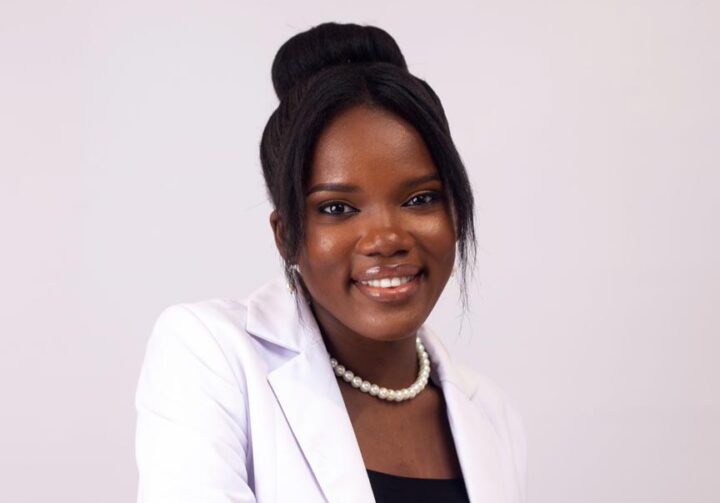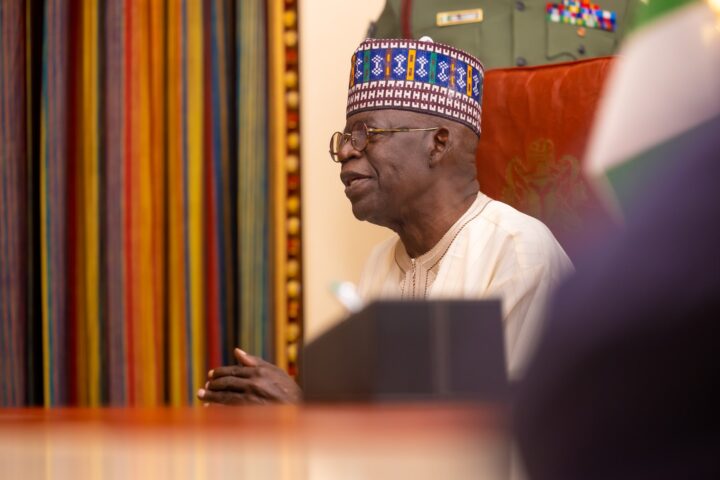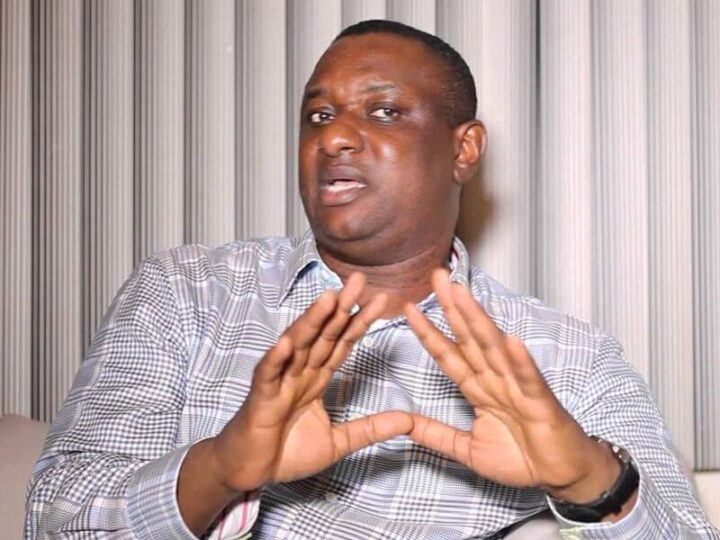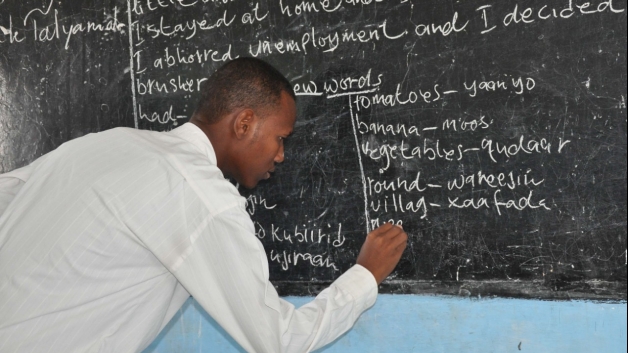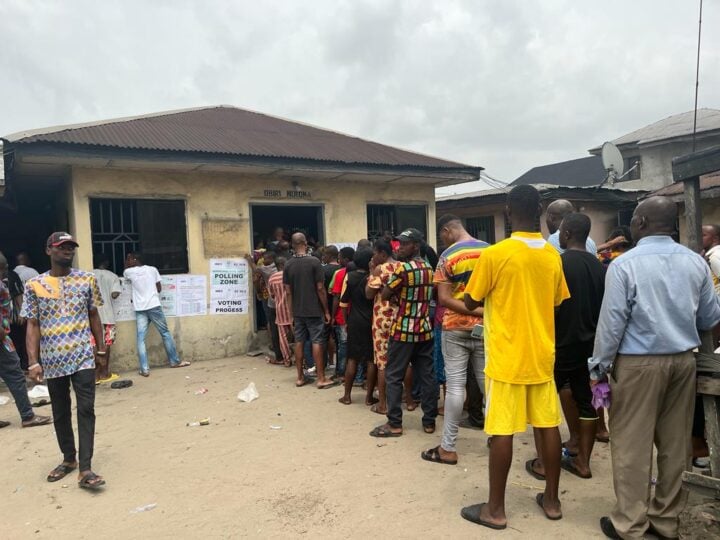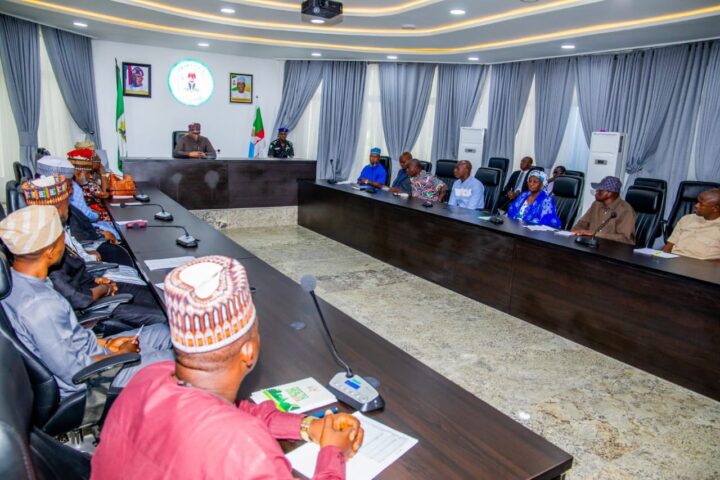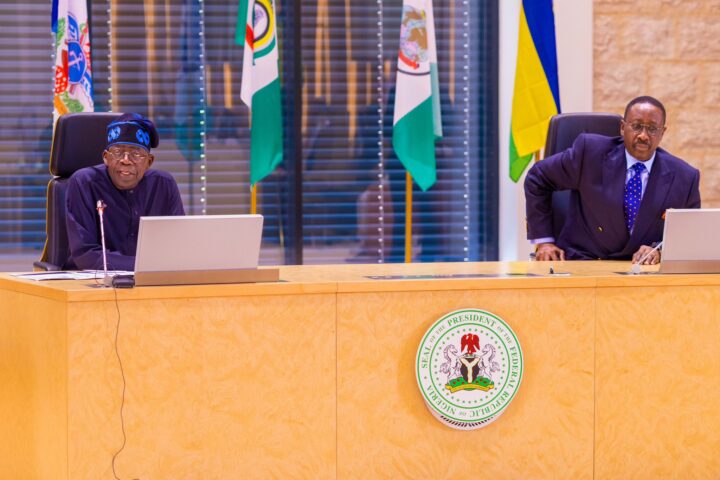It is common to see refuse dumps littered across streets and plastic-laden gutters in some states. This is not peculiar to Nigeria alone. Plastic pollution has become a global “pandemic”. According to the United Nations, every year, more than 400 million tonnes of plastic are produced worldwide; of that, less than 10 per cent is recycled. In this interview to mark world environment day, Oluwaseyi Moejoh, a climate change activist, spoke with TheCable’s VIVIAN CHIME on the role of young people in achieving the global goal to #BeatPlasticPollution.
TheCable: What led you to this path of climate advocacy and starting up U-Recycle at such a young age?
MOEJOH: I revived an environmental club in my high school when I was 16 and set up the NGO at 17 years old. What I would say drove me to this path was the gap between youth action and the issue of climate change. I was just a student in high school when I got to learn about sustainable development goals. I got to understand how everybody’s action counts in this mission to accelerate sustainable development for present and future generations.
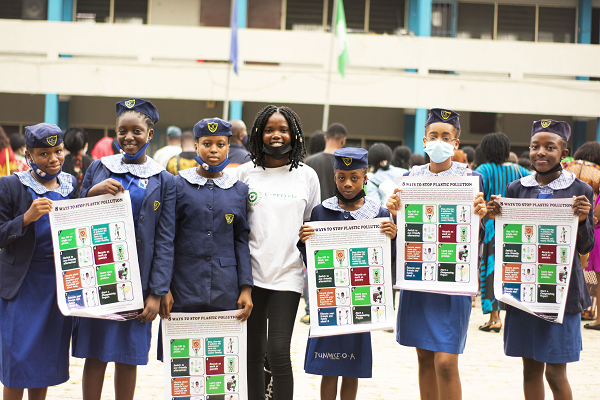
eco-talk session at a secondary school in Lagos
One thing led to another and I became particularly more intrigued and interested in plastic pollution because this is something that every Nigerian can relate to. It is on our streets; it is in the gutters and in every single place you can think of.
Advertisement
So, I wanted to see how we could leverage the power of young people. How we can leverage the energy, ideas, the creativity of young people to solve this problem and beyond plastic pollution, climate change, biodiversity loss and environmental injustice.
We saw that young people are actually very concerned about these issues and we wanted to help connect them with the opportunities. We wanted to give them the tools, the funding, the resources, the platform, and the opportunities to accelerate change. That was why we started U-Recycle and I’m so happy that so far, we have been able to achieve so much impact in that regard.
When I started on this path, I experienced so many hardships, especially evolving from my age, being very young, and not having access to opportunities in Nigeria to help build my skill sets and my capacity to be able to develop solutions. The passion was there, but the opportunities to refine the passion weren’t there. That is where my organisation is currently filling up the gap massively.
Advertisement
TheCable: You once said that the world cannot recycle its way out of plastic pollution. What alternatives do you suggest to end this menace?
MOEJOH: Plastic is actually a wonder material. It was a solution to a problem. There was a particular issue of ivory, I think rhinos and other animals were being used for a particular purpose and then plastic was developed as a suitable alternative to avert the impact. But what you see here is that there was a design malfunction. So, plastic in itself has a lot of value to offer. However, when you weigh the disadvantages of plastics with the advantages, the disadvantages far outweigh the advantages.
I always say that the same way we were able to invent a way out of the previous problem that led to plastic, that’s the same way that we can create a better invention, a better innovation to swap out the plastic. What we however need is ambition and awareness. A lot of people do not actually know the extensive impacts of plastic pollution on the planet, on themselves as humans and on biodiversity, and also most importantly, on our future. They think it is all about the fifteen minutes of convenience, or they’re looking at the gain in terms of the profit.
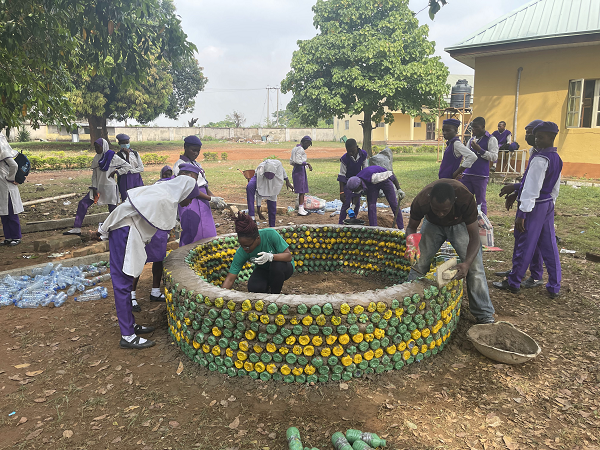
We have some companies that are driving off profit from manufacturing plastic. So, we need to take off the scales from our eyes and see plastic for what it truly is. Plastic is actually very dangerous and it is important that we actually begin to invent our way out of this problem.
Advertisement
TheCable: Stakeholders from civil society organisations have called for a ban on single-use plastic by 2024. Why is this ban important in addressing the challenge?
MOEJOH: We are sitting on a time bomb when it comes to plastic pollution. A time bomb has a time attached to it and it doesn’t mean that it can’t be detonated. When you have a time bomb ticking, you don’t just sit down and look at it. If you don’t want it to explode, you have to look for a way to urgently deactivate it. That is what a ban does.
The ban will help to massively limit the impact of plastic pollution in Nigeria, on our health, our marine ecosystems, our livelihoods and businesses. For instance, a lot of coastal communities are experiencing environmental injustice in their lives in general, from their livelihood, such as fishing, to their quality of life as a community. There is plastic polluting every single place. The plastic won’t stay just for a couple of months, it’s plastic that is going to last for years. The normal lifespan of plastics is about 400 to 500 years, if not more. That is even like four times the lifespan of a human being; so you can imagine how catastrophic this problem is. Yet, we are sleeping on this time bomb.
I would like the Nigerian government to treat this as a time bomb. I understand that the realities might be difficult, but where there is a will, there is a way.
Advertisement
TheCable: What are some of the practices that currently encourage plastic pollution and what would you like to see people do differently to protect the environment?
MOEJOH: One practice that currently encourages plastic pollution is the excessive consumption and use of plastic. For everything people buy, there is plastic attached to it. People use tons of plastic bottles without even considering recycling them. At U-Recycle for instance, we help people understand we have what we call a plastic footprint. It is a new terminology in the plastic pollution space that helps individuals understand that the amount of plastic they generate as a person can have an impact on nature and on the planet. What this means in essence is if we collectively reduce our plastic footprint, it can help to solve the problem of pollution.
Advertisement
There’s also the need to strike a balance between individual action, collective action and action from producers and manufacturers of plastic. We need to strike a balance between systemic change and behavioural change.
In terms of behavioural changes, I would like to see people reduce their plastic footprint, that is reducing the amount of plastic they generate on a daily basis. Imagine if one million people who previously used five pieces of plastic on a daily basis now find suitable reusable alternatives and use water bottles, reusable bags, reusable straws, and reusable cutlery. That would prevent over five million single-use plastic waste items from being generated on a daily basis. But if those people don’t care and probably decide to use 10 plastics daily, that would have been 10 million pieces of plastic used on a daily basis.
Advertisement
TheCable: This year’s environment day, the world aims to #BeatPlasticPollution. But developed countries allegedly export plastic waste to developing countries. What would you say to world leaders about halting this disastrous act?
MOEJOH: The word that is coming to me now is ‘expose and shame’. We need to start exposing countries that are involved in this and shame this act because the blame eventually goes to these vulnerable countries where plastic waste is being dumped. We need to expose countries that are sending this plastic waste in tons. We need to begin to call them out and make them accountable for the disastrous act that is being done.
Advertisement
I think that the global plastics treaty would be an essential tool to solve this. We also need to go to the root of the problem. Why are these countries generating so much plastic waste in the first place? What can be done to halt that? Why are they exporting their plastic waste? What can be done to halt that as well? We need to move and see beyond the symptoms.
So, we need to look at the root cause of the problem of plastic pollution like what is the major problem and how can we solve it? I think the root cause is essentially a very large gap in knowledge, a large gap in the ambition to develop innovations towards solving it.
TheCable: How does U-Recycle advance the idea of reducing, reusing, and recycling, and what innovative solutions do you deploy to #BeatPlasticPollution?
MOEJOH: Our work is shaped around three major pillars – enlighten, empower and create value. We develop creative educational tools and programmes to help accelerate climate education across schools and universities to tackle the issue of plastic pollution.
We have our eco talks at school assemblies, our workshops, and boot camps. We also recently launched our plastic wise 21 days challenge. It’s like a lifestyle game where university students can learn how they can reduce their plastic waste generation over a period of 21 days.
We have our robust intensive project-based fellowships. Through these fellowship programmes, we train young people to create solutions to the plastic and climate crisis in their communities. We connect them with toolkits, mentorship and funding to do this. We help them essentially to be the change in their communities to be at the frontline in leading solutions.
These fellowship programmes like our Plastic Wise fellowship and our AY4E fellowship have gone on to scale our work to over 14 states in Nigeria so far. We have deployed a number of programmes that help to upcycle or recycle plastics for valuable purposes.
For instance, we have our Plastic Wise talking bins which we recently developed. It has a speech that reads: ‘I am hungry, feed me your plastic’. It has that effect, nudging the right behaviour and it has been deployed across a number of universities.
TheCable: What are some of the challenges you face running a sustainability NGO in Nigeria and how have you overcome them?
MOEJOH: One of the challenges we are facing currently is that our organisation is being led by young people and Nigeria has this ageism culture where older people actually look down on younger people.
We have to sometimes work extra hard to prove to ourselves that we can actually do this. We are young people with so much potential and people that have believed in us and given us a chance get to see the resounding impact we can create. It is really stressful sometimes to navigate and some of us are still in school and that can also be a problem.
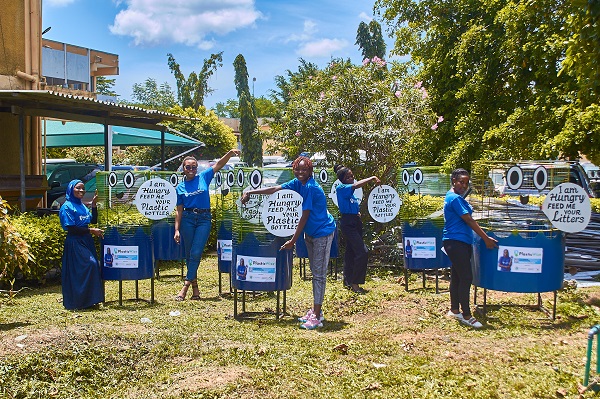
Another challenge we face is bureaucracy. Sometimes, we would like to get our projects to schools. It can take months. Well, right now, we’re trying to collaborate with government agencies and stakeholders to be able to access schools better.
Lastly, we believe that we’ll have so much more potential for impact if we receive more funding in terms of grants so that we can scale our work to reach more regions across Nigeria.
One thing we are really working towards is making our projects more inclusive. We don’t just want to be in one state in Nigeria. Right now, we have projects across 14 states in Nigeria and we actually want to see this work being done across the 36 states in Nigeria and the FCT.
TheCable: What would you say to young people like yourself who wish to contribute meaningfully to solving plastic pollution but do not know how or where to start?
MOEJOH: To young people seeking to tackle global problems like plastic pollution, my advice to you is to never give up. You might not be able to figure out everything at the beginning of your journey. Why? This can be very complex.
But as you travel down this beautiful journey and path, you get to unravel really unique aspects of it and one day you will sit down and look back and you’ll be so grateful that you did not give up.
If you’re facing difficulties in solving an issue as difficult as plastic pollution or climate crisis and it feels like your solution is just like a drop in a very large ocean, it still counts in some way.
I would like to encourage everyone to please take action, it’s not just about talking about the problem but actually taking action this Environment Day and beyond.
